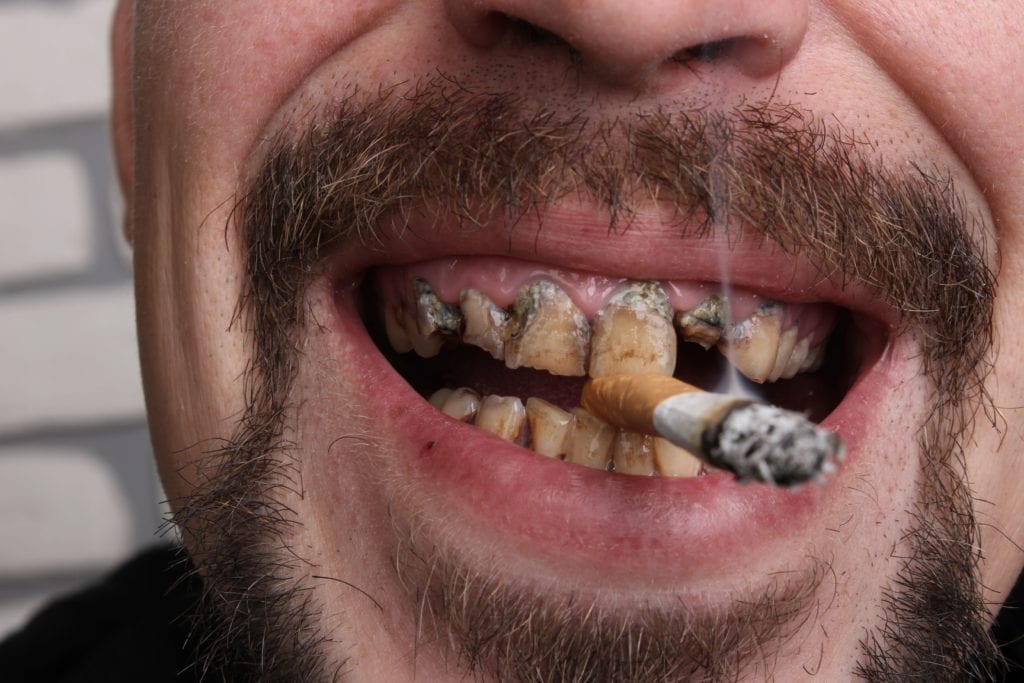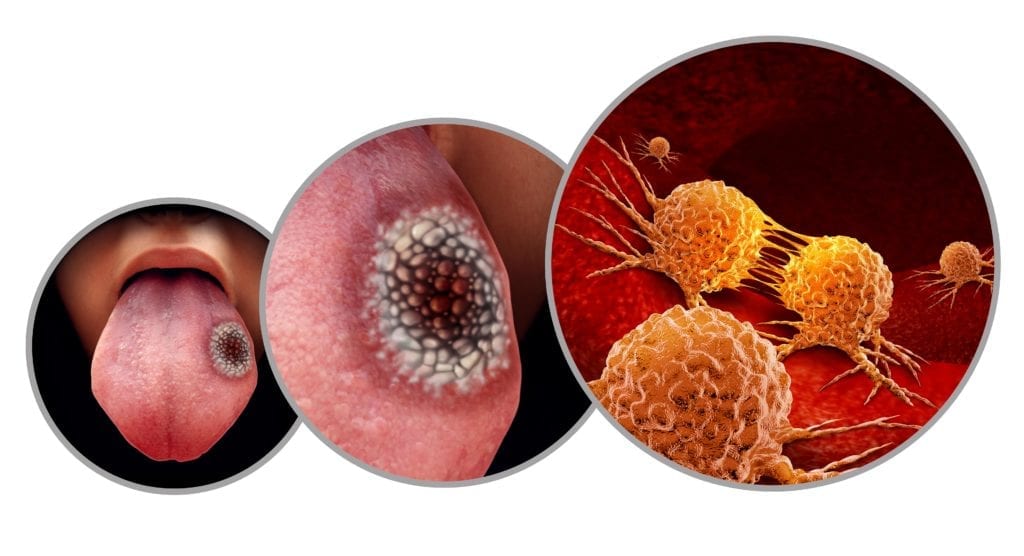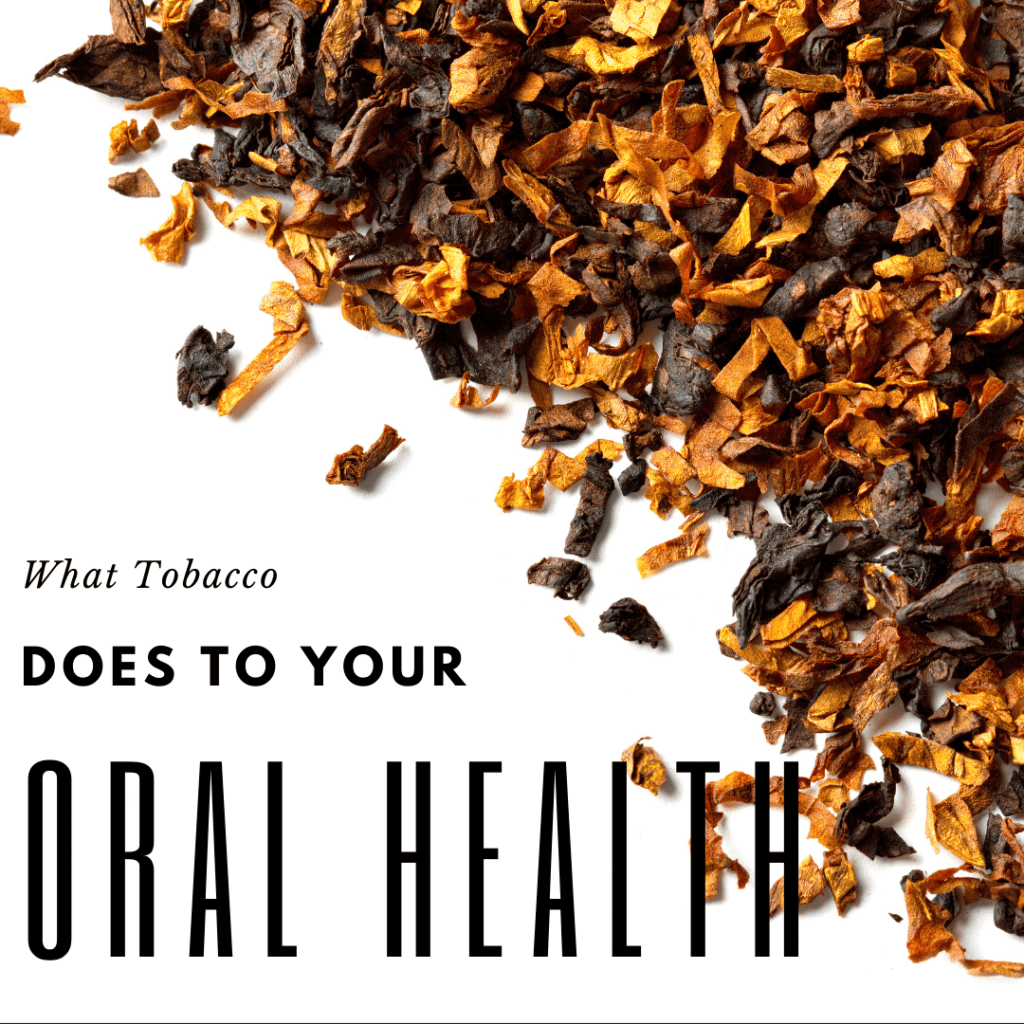It is common knowledge that tobacco is a health hazard, however much of this narrative is centered around its negative effects on the respiratory system, as well as its ability to increase the risk of lung cancer, breathing problems, and chronic obstructive pulmonary disease (COPD). Unfortunately, tobacco negatively affects more than simply the respiratory system. In fact, tobacco use can have quite the negative effect on your oral health and can even make it difficult to treat certain oral health problems.
While most people associate tobacco use with smoking cigarettes, there are various other forms of tobacco that can still be problematic to your oral and overall health. Besides cigarettes, tobacco can also take the form of cigars, smokeless tobacco, compressed dissolvable tobacco, hookahs, and electronic cigarettes (vapes). Despite the common myth that some forms of tobacco are “healthier” than others, all forms of tobacco have been shown to be detrimental overall.
This is because tobacco use, regardless of its form, has been associated with the following oral health problems:
Gum Disease

Gingivitis is a mild form of gum disease that can develop into periodontitis, the advanced form of the disease, if not treated. Unfortunately periodontitis is extremely common in people who use tobacco since tobacco restricts blood flow to the gums and disrupts the normal function of gum cells. Both these negative effects on the gums increase the risk of infection, while decreasing the body’s ability to heal itself.
Worn Enamel
Your tooth enamel is the outermost layer of your teeth and it is responsible for protecting the inner structures. While enamel is extremely strong, it is not indestructible. Chewing tobacco, cigars, and unprocessed tobacco leaves contain small abrasive particles that mix with saliva to create an abrasive paste. This paste slowly wears down and weakens your tooth enamel, making you more susceptible to tooth decay and sensitivity.
Stained Teeth
Not only does tobacco use wear down your tooth enamel, but it also causes your teeth to become discolored and stained. This happens because nicotine reacts with oxygen and causes the teeth to take on a yellowish tint. Furthermore, tar is another ingredient that is frequently used and causes the teeth to take on a grey or black tint. Not only that, but tobacco use causes more plaque and tartar accumulation, which can also trap colored pigments from foods and beverages.
Post Treatment Complications

One main negative effect that tobacco has on the mouth is that it reduces blood flow. When it comes to recovering from treatments such as extractions, periodontal treatments, or oral surgery, blood flow is crucial for proper healing. Reduced blood flow not only slows down the healing process, but it increases the risk of post treatment complications. For this reason, some dentists won’t perform certain restorative procedures on tobacco users.
Oral Cancer
People who smoke cigarettes, pipes, or cigars are six times more likely to develop oral cancer. Additionally, people who use chewing tobacco are fifty times more likely to develop oral cancer that specifically affects their cheeks, lips, or gums. Oral cancer can affect any part of the mouth, including the tongue, lips, cheeks, floor of the mouth, and hard and soft palates, as well as the sinuses and throat.

Dr. Admar holds dual certificates — a Bachelor of Dental Surgery (BDS) in 2010 from India and a Doctor of Dental Surgery (DDS) in 2014 from Canada. He is now a full time practicing dentist in Kamloops where he provides a variety of services. Dr. Admar spends hundreds of hours in continued dental education to stay up to date in cosmetic and implant dentistry and he has achieved several advanced qualifications.


